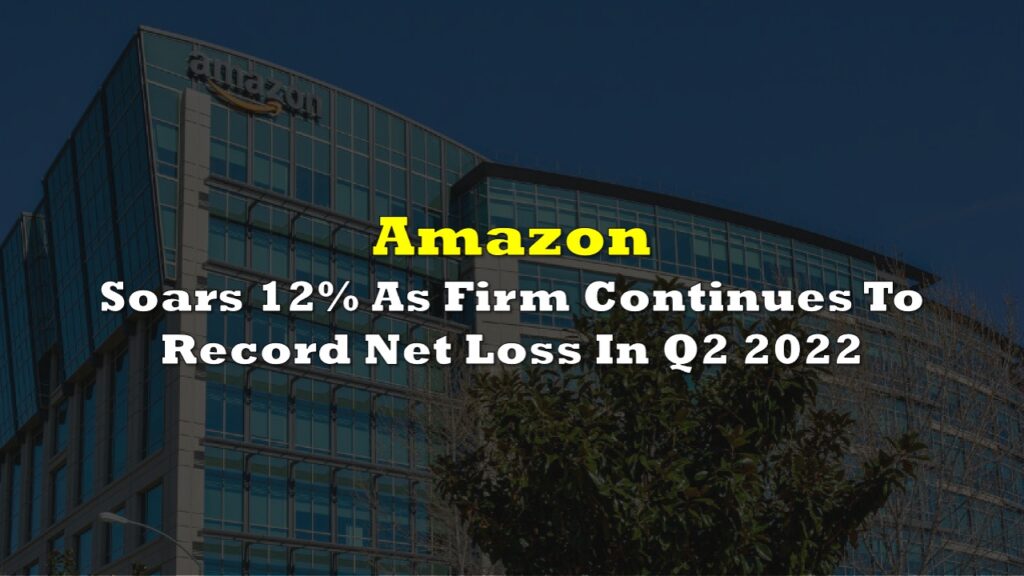Amazon (NASDAQ: AMZN) CEO Andy Jassy has announced sweeping changes that are set to reshape the company’s internal structure and workplace culture. In an internal meeting on Monday, Jassy revealed two major updates: a company-wide reduction in middle management and a return to full-time, in-office work for employees.
The firm’s decision to reduce middle management comes amid a broader industry trend where tech companies are trimming excess layers of bureaucracy to improve efficiency. According to reports, the move is aimed at eliminating redundant roles and increasing operational speed.
Jassy announced that Amazon aims to increase the ratio of individual contributors to managers by at least 15% by the end of Q1 2025, stating, “Having fewer managers will remove layers and flatten organizations more than they are today.” He believes this will drive decision-making closer to the front lines, decrease bureaucracy, and enhance customer outcomes.
To reinforce this goal, Jassy has created a “Bureaucracy Mailbox” for employees to report unnecessary processes, promising to personally review and act on these submissions.
Two big updates from Andy Jassy today:
— BuccoCapital Bloke (@buccocapital) September 16, 2024
– Taking a buzzsaw to middle management
– Return to Office 5 days a week$AMZN has been dead money for 4 years. Time to crack some skulls pic.twitter.com/1aligWMjW1
In recent years, Amazon has grown at a rapid pace, with an increasingly complex organizational structure. While this growth fueled Amazon’s expansion into new markets, it also introduced inefficiencies. The company’s decision to scale back on middle management appears to be a direct response to these inefficiencies, with Jassy aiming to streamline operations and allow for quicker decision-making.
“Flattening the organization means that more people can work closer to the details and the customers,” said Jassy during the announcement. He emphasized that the change would enable Amazon to move faster and avoid bottlenecks caused by too many layers of approval.
Full return to office
In addition to managerial changes, Jassy also declared that all corporate staff would be required to return to the office five days a week, ending the company’s previous policy of hybrid or remote work. This mandate is set to go into effect in the coming months, and while the transition may be smooth for some, it is likely to spark pushback from employees who have grown accustomed to the flexibility of remote work.
Jassy emphasized the importance of in-person collaboration: “The advantages of being together in the office are significant.” He explained that face-to-face work fosters stronger connections, brainstorming, and culture-building, all of which are more difficult to achieve in a remote environment.
The chief executive also reflected on the last five years and mentioned that the experience of the last 15 months—when many employees returned to the office three days a week—reinforced the company’s belief in the benefits of physical presence.
“We continue to believe that the advantages of being together in the office are significant,” he reiterated.
This decision puts Amazon in line with other tech giants such as Google and Meta, both of which have also pushed for more in-office time. Jassy’s remarks highlight a growing belief among corporate leaders that in-person collaboration is essential for long-term success. However, Amazon’s move stands in contrast to broader workforce trends, where remote work remains highly favored by employees across multiple sectors.
Amazon had allowed more lenient work-from-home arrangements during the pandemic, and while some employees returned to the office part-time, many continued to work remotely. Now, with Jassy’s mandate, it seems that the company is taking a hard stance, regardless of employee preferences.
The announcement has sent ripples through both the tech and financial sectors, with commentators divided over the effectiveness of these changes. On social media, commentator BuccoCapital’s account posted, “Two big updates from Andy Jassy today: Taking a buzzsaw to middle management and Return to Office 5 days a week. $AMZN has been dead money for 4 years. Time to crack some skulls.”
The post reflects the frustration of some investors who feel that Amazon’s stock has underperformed relative to its growth potential. While Amazon continues to dominate in sectors like e-commerce and cloud computing, its stock performance has not reflected the same upward trajectory seen in companies like Apple and Microsoft. Critics argue that the company’s bloated structure has contributed to slower innovation and weaker profit margins.
The return-to-office mandate comes at a time when remote work remains popular among tech workers, and research has shown that many employees are willing to leave their current jobs if forced to return to in-office work full-time. A recent survey by FlexJobs found that 65% of remote workers would rather quit than return to the office five days a week.
Information for this story was found via the sources and companies mentioned. The author has no securities or affiliations related to the organizations discussed. Not a recommendation to buy or sell. Always do additional research and consult a professional before purchasing a security. The author holds no licenses.









